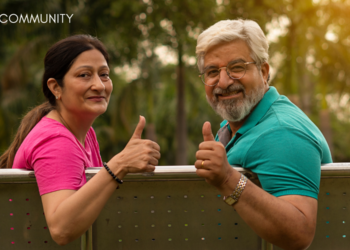According to an ICMR consensus document on prostate cancer, India is expected to have more than 47000 cases of prostate cancer by 2025. This number will put it at 3% of total cancers in India. This document also mentions that the mean age of incidence of prostate cancer in India is 69.7 years. This statistic is alarming for senior citizens as it increases their risk. If you are wondering how to prevent prostate cancer, here is some food for thought.
It is not possible to prevent prostate cancer. Neither does it mean you will get it for sure. There are risk factors. All you can do is adopt a few measures to reduce your risk of getting it. But, considering most cancer incidences are detected late, reducing the survival chances, it is good to know what you can do. The positive aspect is that if detected early, the survival chances are as good as 100%.
Let us briefly glance at the risk factors to understand the implications.

Join Now >
The risk factors
It is a bit disappointing, but true! Age is a significant risk factor which is not on your side where prostate cancer is concerned. Two other factors you cannot do much about are race and genetics. For example, African Americans have a higher risk of developing this cancer, as are those with a family history of it. But there are a few other factors you can work on to try and keep it at bay.
Let’s look at the measures that help in this endeavour. The good news is that even those with a higher risk can use these measures to reduce the risk.
Measures to reduce risk
Maintain a healthy diet
It looks like every other health-related advice we see is linked to diet! But, when you are what you eat, it is natural to say diet plays a significant role in our health. Perhaps that explains the significance of diet in our ancient Ayurvedic treatment modes. Changing your diet can aid many positive changes to your mental and physical health.
Specific to prostate cancer, these are the changes you need to adopt.
Make fresh fruits and vegetables a large part of your diet.
They contain nutrients, especially the components like lycopene, sulforaphane, etc., that help reduce the cancer risk. Studies have shown leafy greens, cooked or boiled tomatoes, and cruciferous vegetables such as cauliflower and broccoli are most helpful. Reduce fat intake or adopt a low-fat diet. Consume healthy fats such as Omega-3 fatty acids from nuts, seeds and fish. An anti-inflammatory diet low in red meat, sugar, processed foods, and dairy products can help the cause. Limit your Calcium intake to the required quantities only and include green tea. But increase your Vitamin D intake through regular sunlight or foods such as cod liver oil, salmon and mushrooms.
Watch your weight
Obesity increases your risk of prostate cancer; supposedly, a body mass index (BMI) of 30 or higher increases your risk. Eat healthy, exercise regularly and maintain a healthy weight. It reduces your risk factor considerably.
Quit smoking and reduce drinking
If you give up on smoking, you lower your chances of prostate cancer greatly. And if you drink excessively, you might want to cut down on it. Some studies have shown that antioxidants in red wine can help lower the risk. However, as always, the key is to drink in moderation.
Overall, it appears that if men follow a healthy lifestyle and live happily by keeping stress away, it aids a lot of things, keeping prostate cancer at bay.









